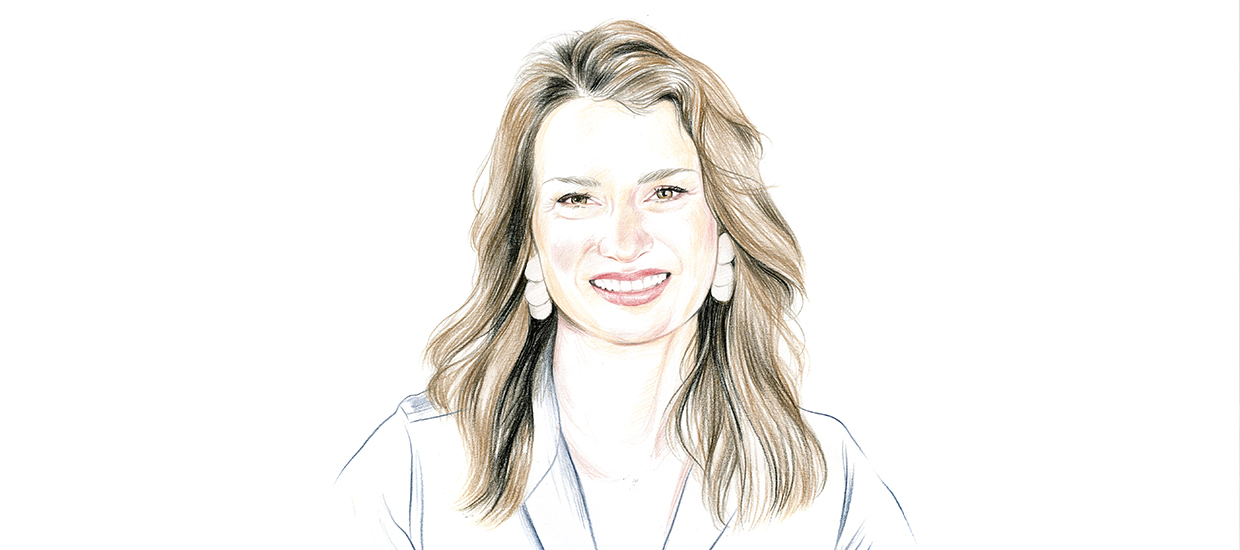Linda Findley Kozlowski likes a challenge. She came on as president and CEO of Blue Apron in 2019 to help the once-lauded meal-kit purveyor return to growth after its stock price had plummeted to roughly one-tenth of what it had been at the company’s nearly $2 billion IPO evaluation. Kozlowski, who previously held executive positions at Etsy and Alibaba, says she took the reins in part because of the 9-year-old company’s high level of brand recognition. “A lot of the challenges the business had pre-IPO and during the IPO,” she says, “were challenges that, [paired with] that brand recognition, presented an opportunity.”
The pandemic, not surprisingly, was a boon for the meal-kit industry, which saw 101 percent average growth from July 2019 to July 2020. Even amid that boom, Kozlowski, who has been a Blue Apron customer since 2016, has made it a point to continue developing new products, with an eye toward a post-pandemic world in which families will continue to value shared time at the dinner table. “Connecting over food is so important to mental health and well-being and cultural change,” she says. “Enabling that part of people’s lives is such a powerful mission.”
On leading through tough times
“When the pandemic hit, the biggest challenge I faced was keeping our employees safe. We have a large essential workforce that never went remote, but at the same time we were seeing unprecedented demand. The first thing we did was reduce the number of recipes that were available, in order to simplify production, so we could quickly put in measures to keep employees safe and manage volume.”
On innovation
“The pandemic is not a business model. We never wanted to be in the position where we were dependent on something like a pandemic to drive traffic, so we had to stay laser-focused on product innovations [such as recipe customization and a 90-minute meal-prep bundle]. And it paid off handsomely. During the last few years, we’ve been able to increase our revenue per customer by more than 22 percent. This has typically been a high-churn industry. There was pressure to acquire as many customers as possible during the pandemic and take advantage of the demand. Our focus has been to make sure we acquire the best customers, who are going to stay and engage with the products.”
On sustainability
“A University of Michigan study [which used a Blue Apron kit] showed that meal kits actually reduce your carbon footprint by [about] 25 percent compared with going to the grocery store. It’s about the packaging you see versus the packaging you don’t see. Don’t forget how much packaging is in the supply chain of groceries. Our packaging is more than 85 percent recyclable now. [Secondly,] about 33 percent of food in the U.S. is being thrown out, whether in the supply chain or at people’s homes. Food waste not only creates more food inequality but also pricing challenges. Meal kits can change the dynamics of the food supply chain and make sure we’re reducing waste [and prices] by only ordering what we need.”
On the post-pandemic future
“You will see some drop-off, but the meal-kit industry isn’t necessarily going to go back to pre-pandemic levels, because people have developed this desire to cook at home more. A lot of people gained more confidence [in their cooking], and they value that connection time with their family: This is what it’s like to eat together and entertain at home. People don’t want to give that up.”
Next Up: How CEO Mary Beth Laughton Successfully Guided Athleta Through the Pandemic
